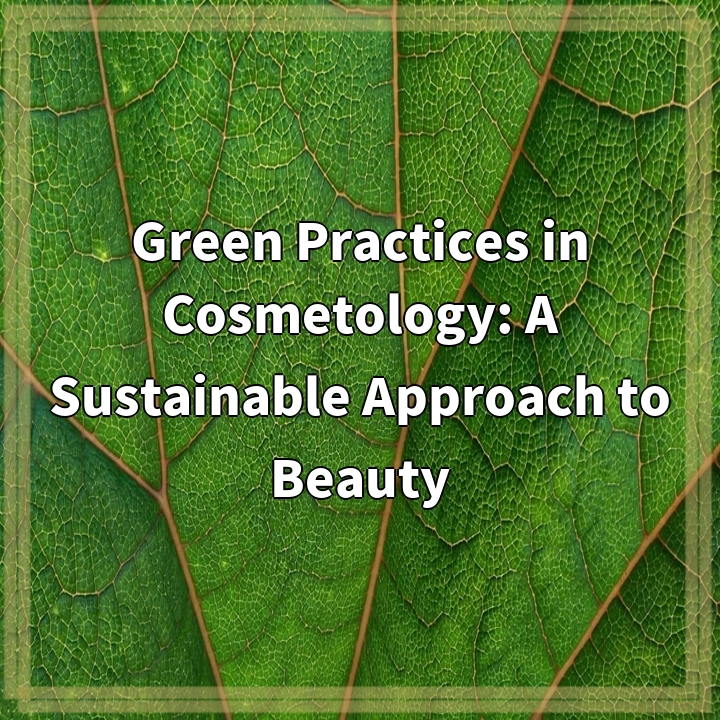
What it is:
In the world of cosmetology, there is a growing movement towards embracing green practices and adopting a more sustainable approach to beauty. Green practices in cosmetology focus on minimizing the environmental impact of cosmetic products and procedures, as well as promoting ethical practices throughout the industry.
The concept of green practices in cosmetology entails incorporating environmentally friendly ingredients, reducing waste and packaging, supporting fair trade and cruelty-free products, and embracing eco-friendly techniques in salons and spas. It is about redefining beauty standards and shifting towards a more environmentally conscious and socially responsible approach.
Real-World Problems:
Despite the increasing demand for green practices in cosmetology, the industry still faces several challenges and real-world problems that need to be addressed.
1. Limited Availability of Sustainable Products:
One of the main challenges in adopting green practices in cosmetology is the limited availability of sustainable products. Many cosmetic companies still rely on harmful chemicals, non-renewable resources, and unethical sourcing practices. It can be difficult for beauty professionals and consumers to find truly sustainable alternatives.
2. Lack of Regulation and Transparency:
The cosmetology industry lacks robust regulation and transparency when it comes to green practices. There is no standardized definition of what constitutes a “green” or “sustainable” cosmetic product, making it challenging for consumers to make informed choices. This lack of transparency can also lead to greenwashing, where companies falsely claim to be environmentally friendly.
3. High Cost of Sustainable Practices:
Implementing green practices in cosmetology often involves additional costs. Sustainable products and equipment may have a higher price tag, making it difficult for small businesses and independent beauty professionals to afford the necessary changes. Cost can be a barrier in the widespread adoption of green practices within the industry.
4. Limited Consumer Awareness:
Many consumers are still unaware of the environmental and ethical implications of conventional beauty practices. There is a need for increased education and awareness to help consumers understand the importance of choosing green and sustainable options. Without consumer demand, it becomes challenging for the industry to prioritize sustainability.

Solutions for Green Practices in Cosmetology:
While there are challenges in adopting green practices in cosmetology, there are also various solutions that can help overcome these obstacles and promote a more sustainable approach to beauty.
1. Encouraging Research and Development:
The beauty industry should invest in research and development to explore innovative and sustainable alternatives. This includes developing new green ingredients, refining eco-friendly production processes, and finding ways to minimize waste and packaging.
2. Establishing Clear Standards and Certifications:
There is a need for industry-wide standards and certifications to define what constitutes a green or sustainable cosmetic product. This will help consumers identify and trust genuinely sustainable options, while also holding companies accountable for their claims.
3. Supporting Collaboration and Networking:
Collaboration among beauty professionals, cosmetic manufacturers, and sustainability organizations is essential. By sharing knowledge, resources, and best practices, the industry can collectively move towards greener practices and create a larger impact.
4. Making Sustainable Practices Affordable:
To increase accessibility, it is important to explore ways to make sustainable practices more affordable. This can be achieved through government incentives, partnerships with sustainable suppliers, and encouraging bulk purchasing and resource sharing among salon owners.
5. Educating Consumers and Professionals:
Increasing awareness about the environmental and ethical implications of conventional beauty practices is crucial. Education campaigns targeting consumers and beauty professionals can help foster a better understanding of the benefits of green practices and encourage demand for sustainable products and services.















